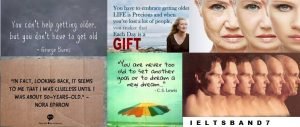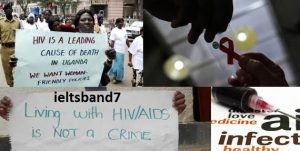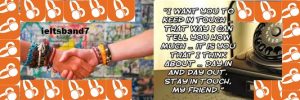Practice Finding Information # Virunga
You should spend about 20 minutes on Questions 14–26, which are based on Reading Passage 2 below.
[A] When the ranger studied the ragtag crew he was supervising, seven young men repairing a rugged road that leads to Virunga National Park, it did not take much to see what he had in common with them. They were all born and raised in or around the park on the eastern edge of the Democratic Republic of the Congo. None of them were rich. None of them would ever be rich. All of them had seen loved ones fall by the capricious machete stroke of a war with murky logic and no foreseeable end.
[B] And now here they all were, working for the park, filling potholes and clearing drainage ditches in the furtherance of something considerably more profound than nine miles of rough gravel. The road joins the Bukima ranger post with tourists from the West, whose money helps support Africa’s oldest national park. These visitors come here principally to fulfill a dream—namely, to stand mere feet away from the park’s illustrious residents, the rare mountain gorillas.
[C] Less famous but just as important, the Bukima road connects farmers outside the park with village markets and the city of Goma beyond. For years it had been a morass of large rocks and quicksand-like mud. Its impassability made hard lives that much harder. But now the park was pouring money into the road’s reconstruction. And local men like these were repairing it. So the road also constituted a bond, albeit a slender one, between the region’s most visible national institution and villagers who view the park with hostility and, at times, rage, believing the land should still belong to them.
[D] Here was where the ranger, a captain named Theo Kambale, parted ways with the young men. Kambale’s heart held nothing but reverence for the park. You could see it in the crispness of his uniform, the care with which he tucked his green pants into his boots, which he fastidiously polished. Kambale was 55 and had spent 31 of those years as a ranger. His father, also a ranger, had died in 1960, the year of Kambale’s birth, gored by an African buffalo. His older brother had also been a ranger. He too had been slain in the line of duty, in 2006. The killer was not a wild animal, but instead a member of one of many armed groups that have ravaged and occupied Virunga for two decades.
[E]To these young men raised in poverty, that Virunga’s tremendously fertile soil, its trees, and its creatures should be protected by law for the viewing pleasure of well-off tourists struck them as a grave injustice. They were swept into a militia known as M23, which touted a host of grievances against the corrupt government but in the meantime was content to loot and rape its way through a slice of eastern Congo near the park’s southern sector. By the end of 2013, after more than a year and a half of fighting, the Congolese Army, backed by United Nations troops, routed M23. Among the militia’s foot soldiers deemed salvageable, by UN peacekeepers and park officials, were these seven.
[F]The work on the Bukima road was harder and less profitable than looting. But the former rebels kept at it. Kambale was impressed. He talked to them from time to time. “Before now, all you were creating was insecurity in the region,” he would say. “Now you’re building this road. It’s a start. From here you can go on to do other things. But you can’t progress if there’s no security. So tell that to your friends. Tell them to leave their armed groups. Because that is not life. This”—and he would gesture toward the road—“is the beginning of life.”
[G]The ranger hoped that his message would sink in. He knew of their disparate backgrounds. He was aware that most had been conscripted by force. Across their arms and backs was a grisly network of scars, testifying to their semi-enslavement. Seeing these men in their 20s permanently marked by brutality, Kambale thought of his own injury, delivered by a militia spear to his right leg. Proof of residency, you could say. If they could look past their battle wounds, perhaps this park could be saved.
[H]The road constituted a bond, albeit a slender one, between the park and villagers who view the park with hostility, believing the land should belong to them.
There is no nationally protected area in the world quite like Virunga, in ways both blessed and cursed. Its approximately two million acres include a web of glacier-fed rivers, one of Africa’s Great Lakes, sun-bleached savannas, impenetrable lowland rainforests, one of the highest peaks on the continent, and two of its most active volcanoes. Virunga hosts more than 700 bird species (among them the handsome francolin and Grauer’s swamp warbler) as well as more than 200 mammals (including the odd-looking okapi, with zebra-striped hind legs, and 480 of the world’s 880 remaining mountain gorillas). Standing where the Semliki River flows out of Lake Edward with the Rwenzori Mountains glowering in the distance, serenaded by a moaning Greek chorus of water-besotted hippos, and gazing down at a thoroughly uncontaminated tableau of swimming elephants and strutting saddle-billed storks backlit by a low morning sun, one becomes very small, very silent, and very aware that nature’s brave feint of indomitability has all but come to an end.
[I]For Virunga has been, going on two decades, a war zone. In 1994 the horrific ethnic conflict in neighboring Rwanda that led to the genocide of Tutsis by Hutus spilled across the border into Congo. Hutu fighters and more than a million refugees fled Rwanda after their defeat, settling in nightmarishly overcrowded camps around the park. Some Hutus later formed the Democratic Forces for the Liberation of Rwanda—known by its French acronym, FDLR—the militia that killed Kambale’s older brother. Congolese Tutsis eventually responded with the National Congress for the People’s Defense, or CNDP, which then spawned the March 23 movement, or M23. One bloody iteration after the next—fomented by these armed groups—has plowed into the park like a threshing machine.
[J]Many of the fighters, along with Congolese Army soldiers purporting to defend the territory, lingered well after the cease-fires, expunging the park’s wildlife for personal consumption or for sale as bushmeat. Thousands remain in the jungle to this day, and thousands more from a shifting array of locally formed militias called Mai-Mai have joined them. Attempts by rangers to drive them out have led to deadly reprisals. This past March two rangers were executed in Virunga’s central sector, driving up the death toll of park rangers to 152 since 1996.
QUESTIONS
Which paragraph contains the following information? Write the correct letter, A–J, in boxes 27–35 on your answer sheet.
- Virunga National Park is situated near the Democratic Republic of Congo.
- Farmers remain connected with the city through Bukima road.
- The reason for Theo Kambale father’s death.
- The young poor people of Virunga find it not justified to have to protect the lands of Virunga for the foreign rich tourists.
- Kambale tried to speak villagers in understanding that being in armed forces is not the right decision to take in life.
- Virunga is the world’s most protected national area.
- The ethnic conflict in 1994 led to the genocide of Tutsis by Hutus.
- Virunga has yet seen the death of about 152 park rangers since 1996.
- The genocide of 1994 eventually led to Congolese Tutsis responding with a movement on March 23, called M23.
- Kambale was injured in his right leg by a militia force.
- People come to visit Virunga National Park to see the rare mountain gorillas.
ANSWERS
- A
- C
- D
- E
- F
- H
- I
- J
- I
- G
- B
Reason for the answer
27. When you read the first paragraph, the line -> they were all born in or around the park on the eastern edge of Democratic Republic of Congo. Here the park is the Virunga National park which is on the eastern edge of the Cong. The question states the national park is near the Democratic Republic of Congo. The line above makes it clear.
28. The first line of the passage, clearly states that the Bukima road connects the farmers to the city.
29. If you clearly see the D paragraph, it mentions, His father, also a ranger, had died in 1960, the year of Kambale’s birth, gored by an African buffalo. In this line, gored means to cause an injury!
30. In the paragraph E, there is a mention of how it “strucks them to grave” .
31. When reading the paragraph F, you see a line where it states that kamble was impressed! He talked to them from time to time!
32. In paragraph H, it clearly mentions, there is no nationally protected area in the world quite like Virunga.
33. In the paragraph, I, the second line states clearly the reasons for the answer!
34. In paragraph J, the last line clearly mentions the death rate.
35. In paragraph I, one can clearly see M23. In questions with specific keyword presented, it is good to just check out for the keyword and then find out answer related to it.
36. In paragraph G, in the second last line, Kambale thinks about his own injury!
37. The last line of paragraph B mentions the reason for people visiting the place.
Source – National Geographic



